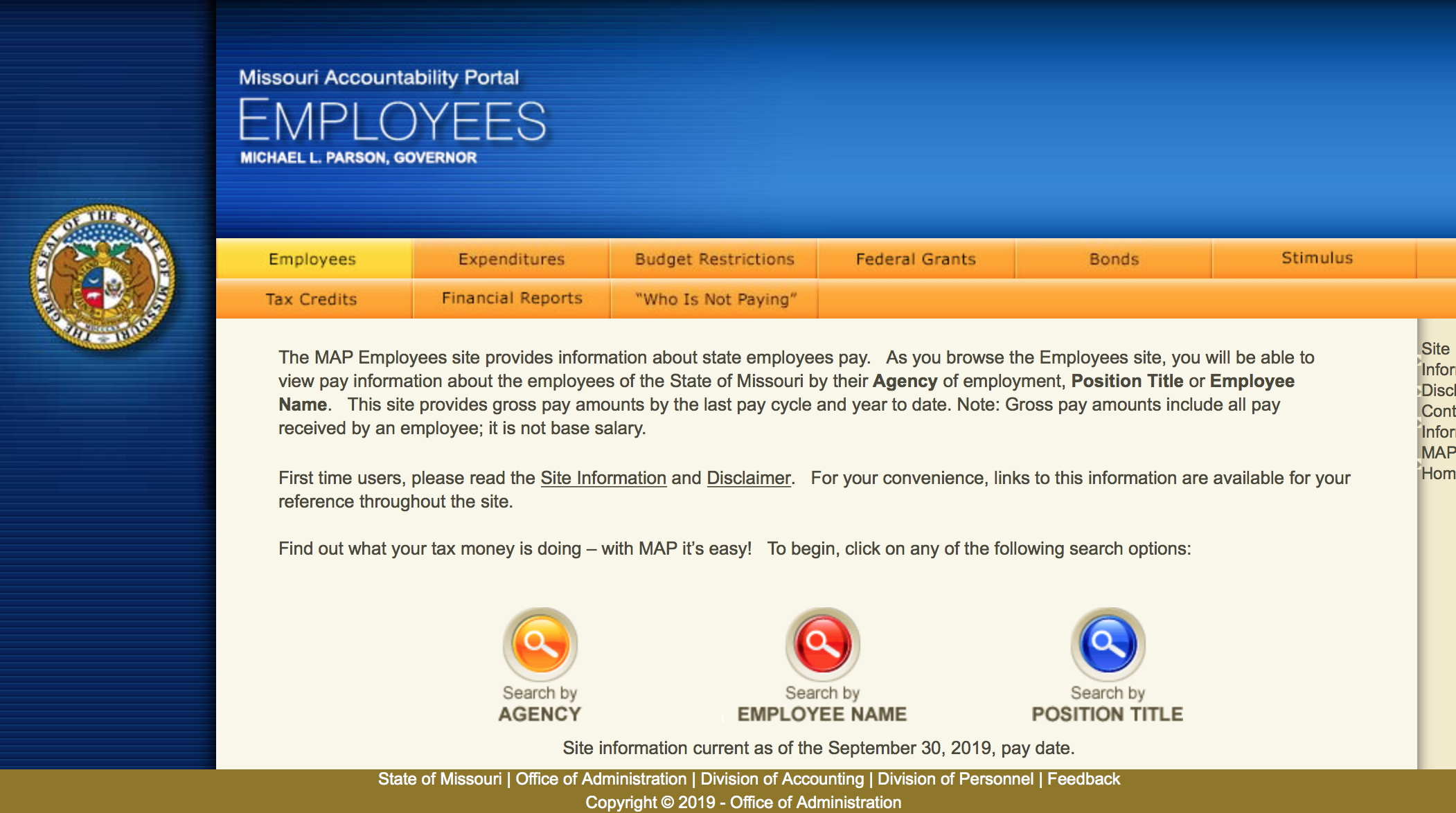JEFFERSON CITY, Mo. — Two state agencies are clashing over one of Missouri’s online databases providing the public with the state’s financial information.
The State Auditor’s Office (SAO), headed by Democratic gubernatorial candidate Nicole Galloway, made several recommendations to ensure data on the Missouri Accountability Portal is “complete, usable and functional.” The Office of Administration (OA), led by Republican Sarah Steelman, disputed some recommendations and outright “disagrees” with others. However, OA did agree to some changes, such as adding a link to another website with the information the Auditor’s Office requested.
“The Office of Administration is committed to providing the citizens of Missouri information about how their tax dollars are being spent through the Missouri Accountability Portal (MAP),” Brittany Ruess, a spokesperson for OA, told The Missouri Times. “The MAP accurately reflects Missouri state government spending. The data on MAP is updated each business day to maintain accuracy and provide the public the most up-to-date information.”
“The Missouri Accountability Portal is designed to allow citizens to easily access public information about how their tax dollars are being used,” Galloway said in a statement. “In order for this tool to be effective, citizens need to be able to easily access the information. This report outlines several improvements the administration can make to ensure data is accurate and usable.”
At the center of the debate is a recent audit determining the accountability portal is missing or has inaccurate information and hasn’t adopted practices outlined by a federal oversight agency.
Specifically, the accountability portal omitted all transactions coded to an employee benefits category, according to the report. That resulted in “an underreporting of state expenditures of approximately $743 million for the 7-month period July 2018 through January 2019.”
To that point, Steelman responded, “OA agrees to add a link on [Missouri Accountability Portal] to the budget explorer website that contains summary employee benefit expenditures.”
The report found — after comparing the information to a list of all bonds certified by SAO — that the accountability portal had inaccurate information on bonds. Seven bonds reported to OA had a different amount than what was certified by the SAO, seven bonds certified by the SAO were not reported to OA, and two bonds were reported to OA twice under different names. In one instance, a bond certified by SAO for $8.8 million was reported to OA as an $8.8 billion issuance.
“By not taking steps to ensure the completeness and accuracy of data provided to the public, the OA risks misleading the public as to the true financial condition of political subdivisions,” the audit stated.
Steelman, in her response to the recommendation, wrote, “OA only has statutory authority to grant the public access through [the Missouri Accountability Portal] of what the localities report about their bond transaction. OA suggests that SAO include a verification process of local bond disclosures to its regular local government audit procedures.”
OA also disagreed with a suggestion to use the U.S. Government Accountability Office’s (GAO) best practices.
Steelman, in an earlier response, argued: “When the federal government does not pay for upgrades to state websites, it lacks the authority to establish the standards for those websites. If OA had unlimited resources, we would determine the best practices and implement them as authorized by Missouri law.”
“The SAO continues to recommend that OA consider GAO standards to determine best practices for Missouri websites. The GAO is an agency of the federal government, a government entity that is demonstrably unfamiliar with the fiscal constraints faced by state governments. As resources allow, OA will consider best practices used by other states for their account websites and implement them,” Steelman said.
When evaluating the practices used when managing the accountability portal, SAO compared OA to the standards set by the GAO. As such, the report found “opportunities exist for the OA to increase the usability and functionality of the [Missouri Accountability Portal].”
Ruess continued her defense of the OA: “The most disappointing part of this audit process was the Auditor’s Office initial misrepresentation that management representation letters are required by Government Auditing Standards — which this Audit concedes they are not — and the Auditor’s Office request that OA backdate that management representation letter. OA declined to backdate the letter because doing so would have created an inaccurate public record, which could have misled the public as to the true date the letter was issued. This conduct conceivably violates Section 570.090.1(1), prohibiting the making of any writing so that it purports to have been made at another time and Section 575.110.1(1), prohibiting the making of a false entry in a public record.”
The full audit and Steelman’s responses are available online.

Alisha Shurr was a reporter for The Missouri Times and The Missouri Times Magazine. She joined The Missouri Times in January 2018 after working as a copy editor for her hometown newspaper in Southern Oregon. Alisha is a graduate of Kansas State University.

















